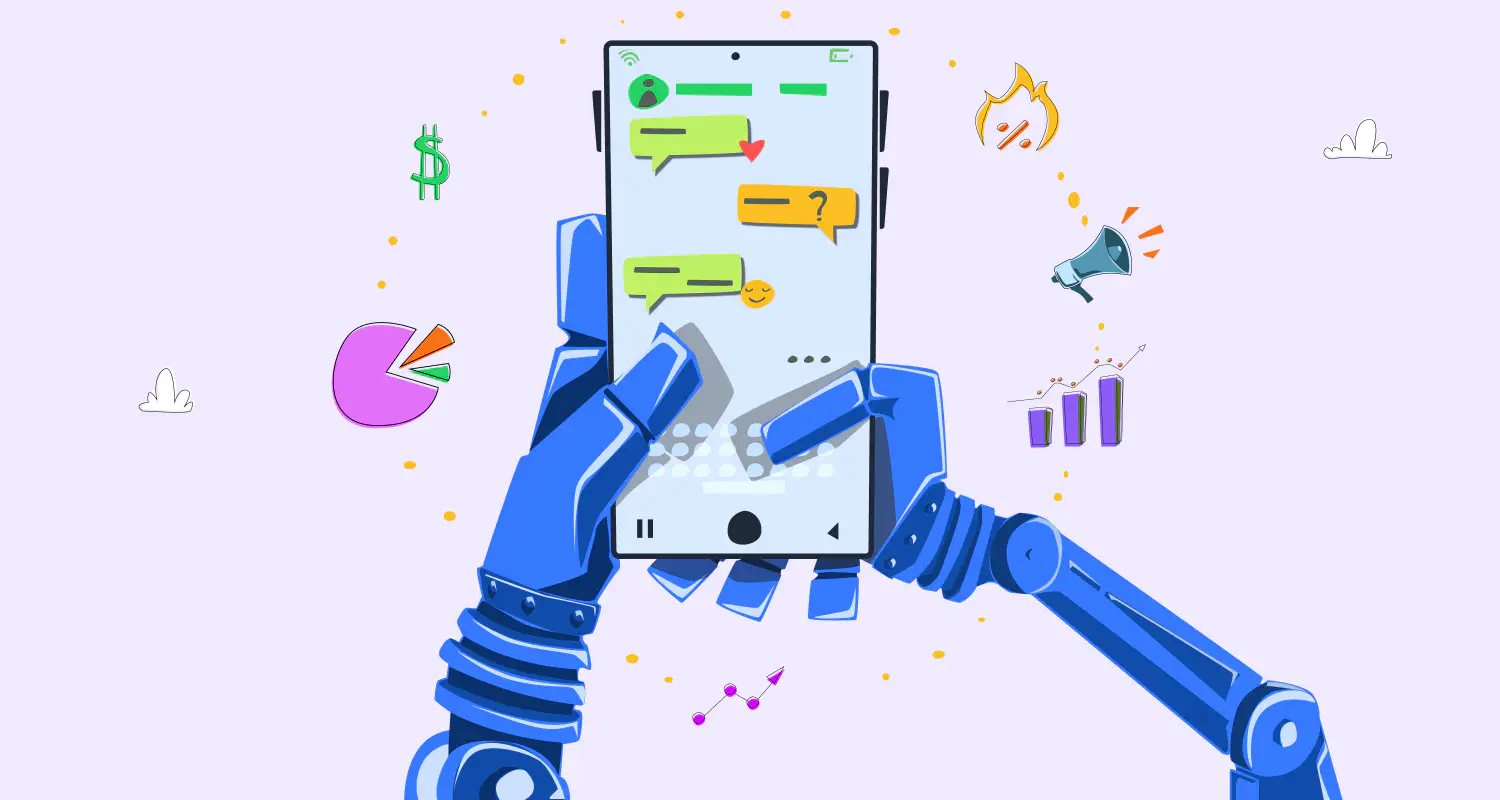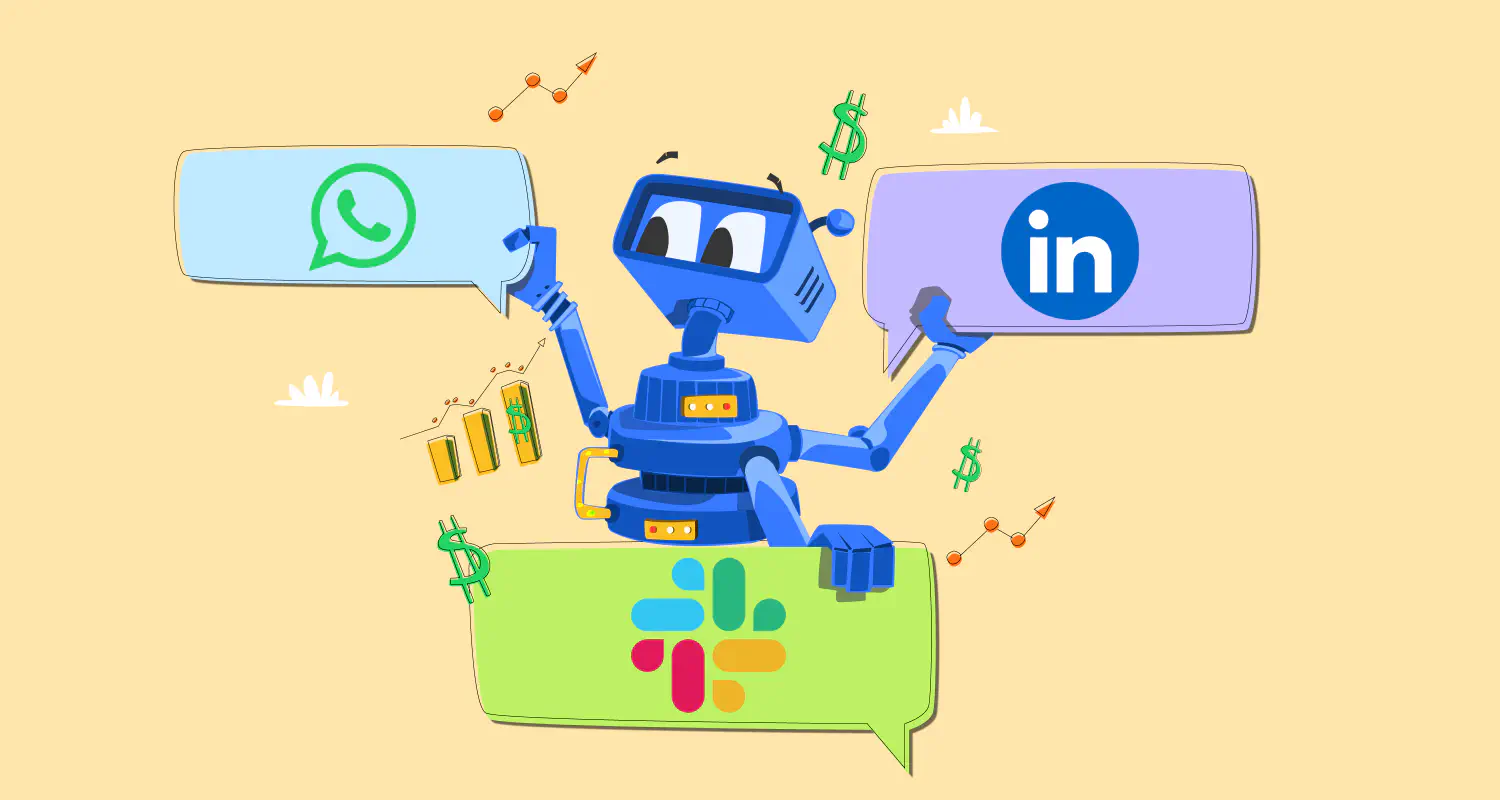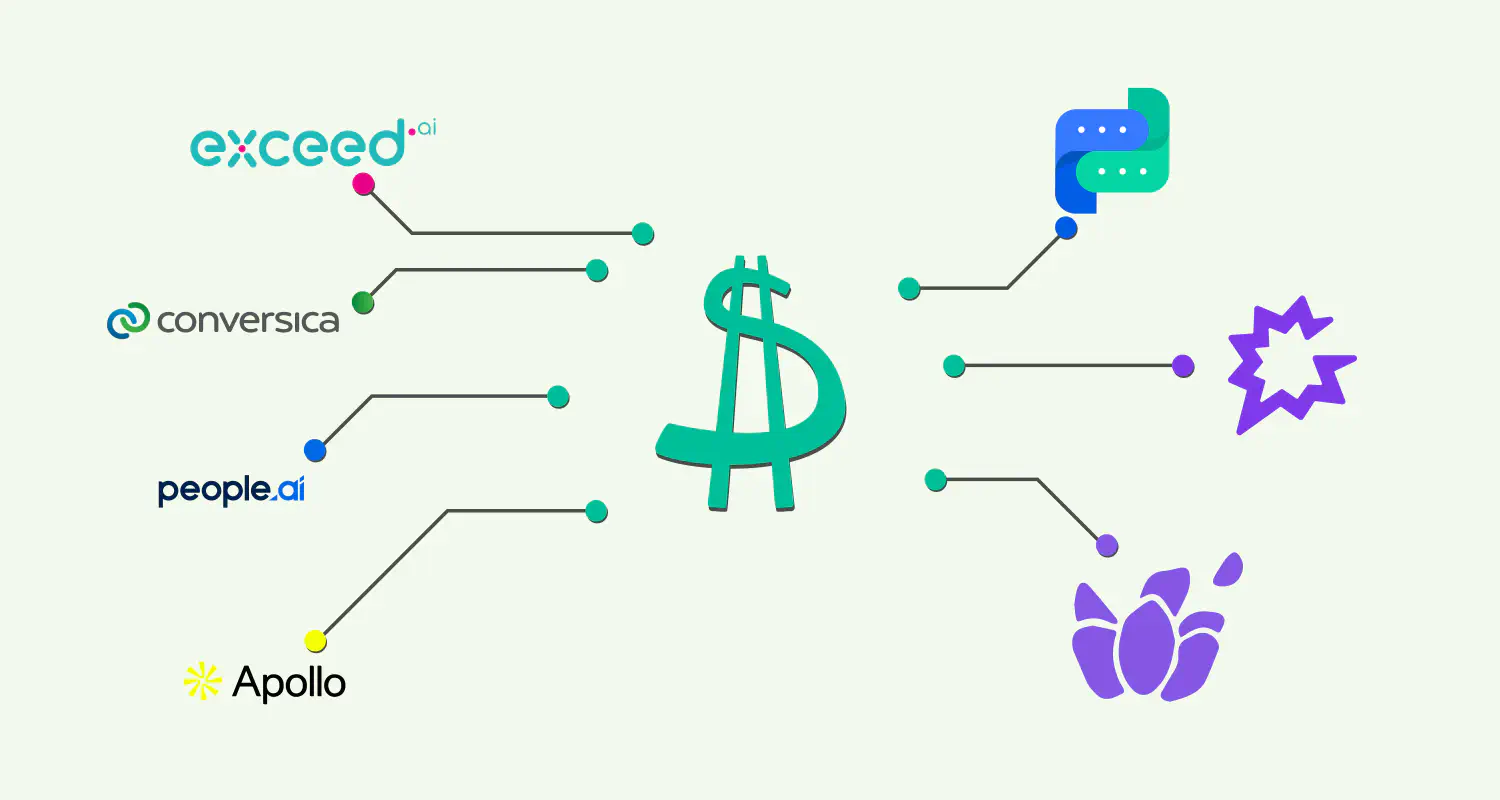How AI on WhatsApp Improves Lead Qualification
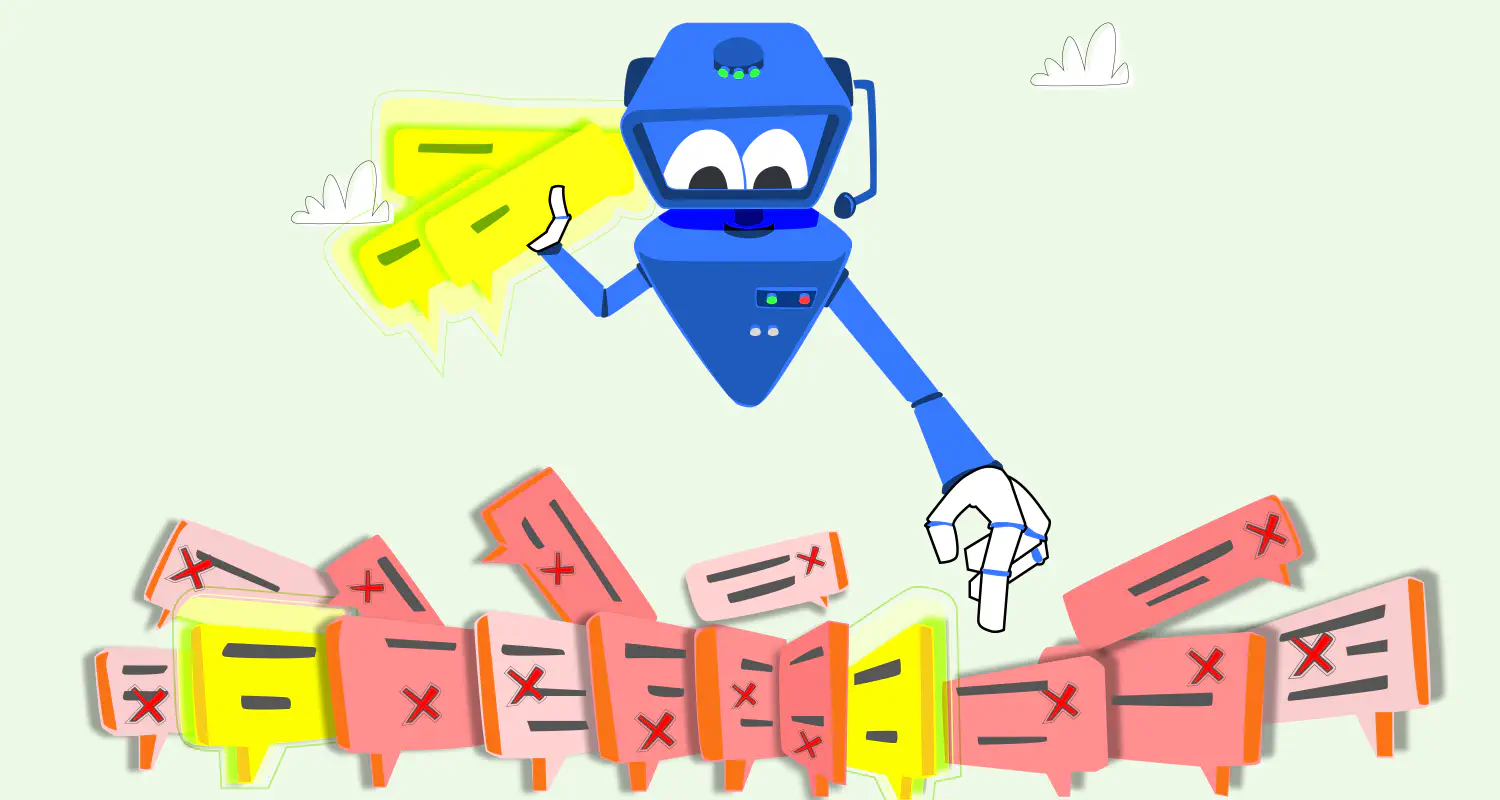
Qualifying leads on WhatsApp can be a pain. Your sales team wastes hours responding to messages, trying to figure out which prospects are serious and which ones will never convert. There are also slow responses, inconsistent qualification criteria, and overloaded inboxes. The final result is lost opportunities and frustrated agents.
But what if there’s a solution? an AI solution?
Believe it or not, an AI qualification agent can qualify leads on WhatsApp and hand over conversations to sales agents. It can also disqualify based on your rules.
In this article, we’ll show you how AI works to qualify and disqualify sales leads on WhatsApp and how it can make your sales process faster and smoother.
Challenges of traditional lead qualification on WhatsApp
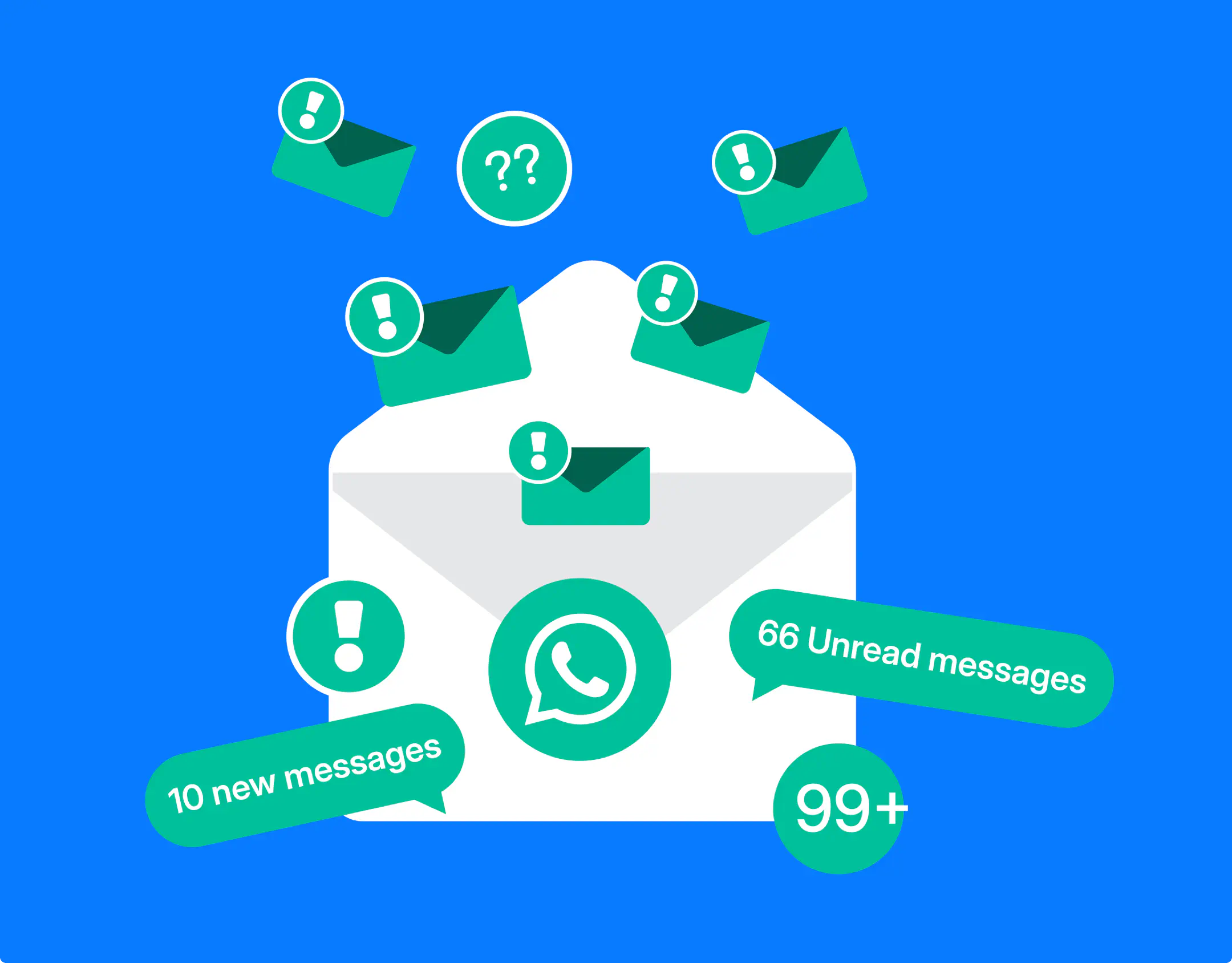
If you’re using WhatsApp to handle leads, you already know how overwhelming it can get. Messages flood in, and your sales team scrambles to keep up.
Here’s an overview of the challenges you meet with WhatsApp lead qualification.
Overwhelming your sales teams
Manual lead qualification is terribly time-consuming, and even more so when you chase the wrong leads.
When sales agents spend hours and days filtering leads, asking questions, and following up, they lose precious time they could be spending on more valuable tasks, like closing deals.
As a result of that, the sales pipeline slows down, leads get stuck in various stages, and sales agents get burnt out.
Inconsistent qualification criteria
When multiple sales agents are working on qualification, inconsistencies occur. For instance, each sales agent might stick to their own criteria of qualifying. Some may focus on budget, some on company size, and some on intent.
The absence of a standardized process will give you varying lead qualities, which means you’ll have to do more filtering.
Slow responses
Customers who buy on WhatsApp expect quick responses, and if your team takes too long to reply, the prospect might lose interest. This is a normal occurrence when your sales team is constantly being flooded with leads, but it isn’t ideal. Every minute of delay increases the chance of losing a potential deal.
These challenges make it clear that traditional WhatsApp lead qualification isn’t built for scale, and there’s a need for a solution. An AI solution, to be specific.
What are AI qualification agents?
AI lead qualification agents are advanced programs capable of filtering and prioritizing leads on WhatsApp autonomously. Instead of your sales team spending hours responding to every message, AI sales agents step in to ask the right questions, analyze responses, and determine which leads are worth pursuing.
So, how do AI lead qualification agents work? They:
- Ask qualifying questions based on your company’s ICP and criteria (budget, business size, team size, etc.)
- Analyze responses in real-time to identify disqualified and qualified leads
- Hand qualified conversations over to sales agents
- Close disqualified conversations
- Leave a summary of the conversation for the sales team
How AI addresses the challenges of WhatsApp lead qualification
AI can solve a lot of challenges related to WhatsApp lead qualification. It replies instantly, saves time, and syncs data with CRMs with CRM Development Services. Here’s a detailed breakdown of how it can improve lead qualification on WhatsApp.
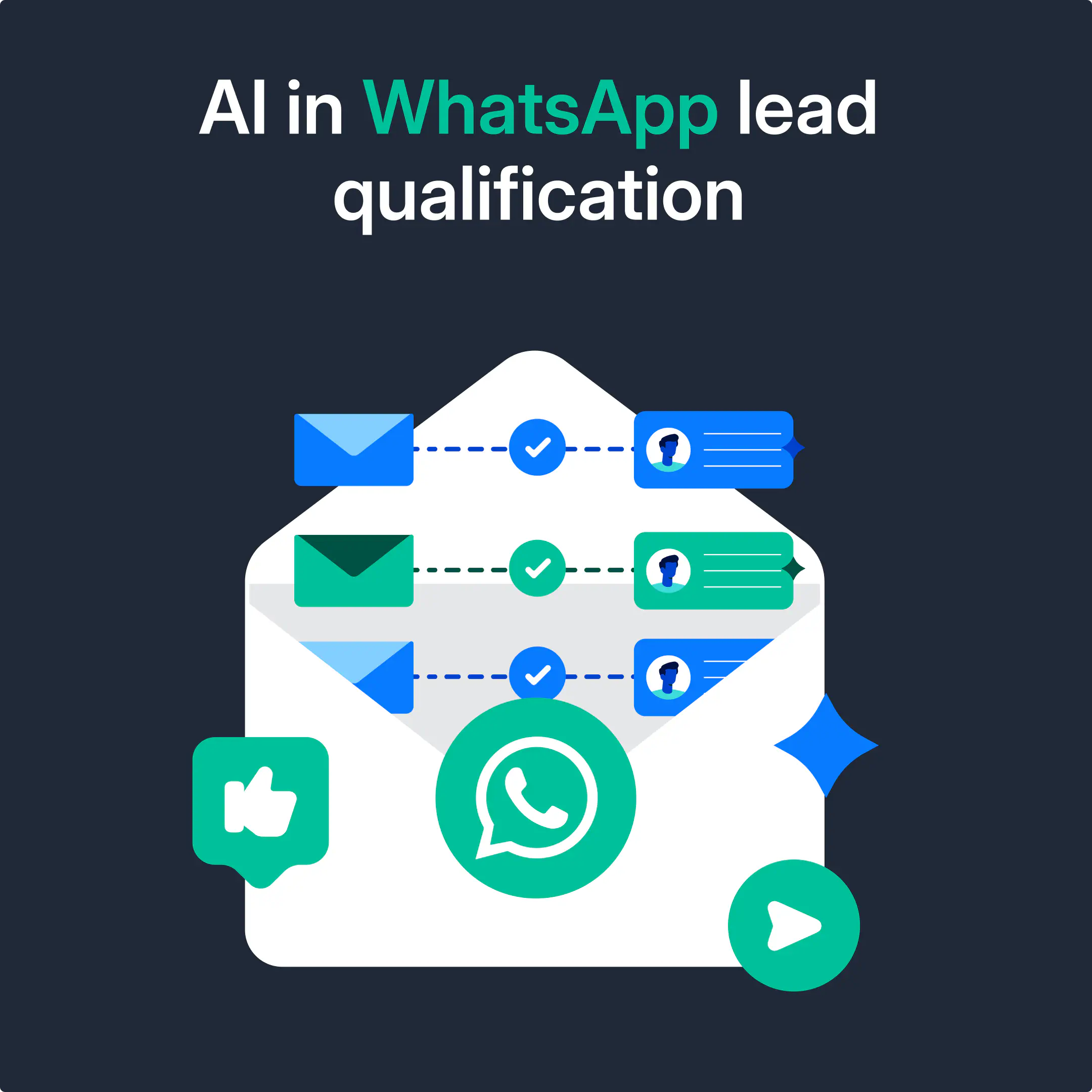
Instant responses
AI agents for lead qualification reply instantly to any inquiry they get. What does this mean? All of your inbound leads will be engaged in conversations the second they message your business. They won’t have enough time to lose interest or move on to a competitor.
Saves sales agents time
When an AI agent handles every single inbound lead for your business, your sales agents get enough time to work on more demanding and impactful tasks. For example, they can focus on building relationships, nurturing, and closing deals.
On top of that, they won’t have to deal with the frustration of chasing disqualified leads. AI agents can disqualify leads autonomously and leave a note with the reason why. This whole process results in a faster and smoother pipeline.
Disqualification policies
AI lead qualification agents work autonomously, but they still need some sort of direction. For example, when setting up a lead qualification agent, you need to set some disqualification policies for it. Write some questions or keywords that the agents can use to disqualify. Other than questions, you can provide criteria, like business size, team size, or location.
Over time, AI agents learn and improve, so the disqualification process can be even more trustworthy.
Smooth hand-offs to sales agents
Once leads are ready to take the next step, the AI qualification agent will hand them off to sales agents. It’ll automatically assign them and leave notes for the agents so that they can pick up the conversation and book a call, start a free trial, or whatever the lead wants.
The best part about this is that only high-intent leads make it through the sales pipeline. In other terms, sales agents get qualified leads on a silver platter. It’s the best way AI and sales agents can collaborate.
Same as disqualification, you can also set hand-off rules for the AI agent. For instance, you can set conditions for directing conversations to senior agents. This way, the right person handles the conversation, and you increase the chances of closing the deal.
Scalability
When you start getting a large number of leads every day, you instantly think of expanding your team. However, it’s not always feasible, and it costs a lot of money. Luckily, implementing AI in your sales processes addresses this issue, as it’s infinitely scalable. It can handle a large number of leads at a minimal cost.
The more leads it qualifies, the more deals your sales teams close, and the bigger your business grows.
Data syncing with CRM
AI can sync data with the CRM you’re using, like conversation history, lead scores, and answers to qualifying questions. This means when a sales agent picks up the conversation, they already know the prospect’s needs, interests, and level of intent.
Why does this matter? Because instead of asking the same questions again or starting from scratch, sales agents can jump straight into the conversations. They can personalize their pitch, address specific concerns, and move leads through the sales process faster.
Real-world example of how AI qualifies prospects on WhatsApp
To help you envision the role of AI in WhatsApp lead qualification, here’s an example.
Suppose a B2B accounting software company offers a solution for businesses. Their goal is to sell to businesses with at least 10 employees and a $5,000 annual budget.
Their sales manager will enter these criteria while setting up the AI agent.
Now, suppose an inbound lead came to the software company. It’s a retail company with 20 employees that manually tracks expenses and wants a more automated way to handle bookkeeping. They confirm they have the budget for it. The AI agent would qualify this customer and hand the conversation over to a sales agent.
Another inbound came in, but this time, it’s a freelance graphic designer who works alone and only needs basic invoicing. They are interested but don’t have enough transactions to justify using an advanced bookkeeping platform.
Here, AI would filter out the freelancer as unqualified.
Conclusion
AI can turn lead qualification from every sales team’s nightmare to a smooth process that runs in the background. It asks inbound leads qualifying questions, decides whether to continue or disqualify, and assigns leads to sales agents when they’re ready to move forward in the pipeline.
On top of that, it scales infinitely and can update CRMs with customer conversations and data.
Frequently Asked Questions

Ashraf is an expert in WhatsApp Business. He has helped 500+ B2B software companies run sales, support, and operations on WhatsApp. He specializes in WhatsApp Business API projects that reduce sales cycles and improve customer experience, and is great at both sales strategies and technical WhatsApp knowledge.

